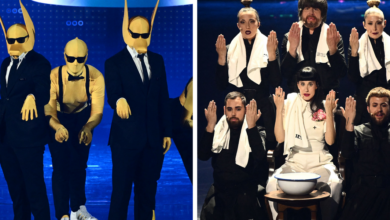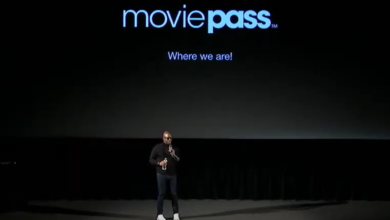Serlina Boyd on launching Britain’s first Black journalism school: ‘So many stories have never been told’

When Serlina Boyd first had the idea of publishing a magazine aimed at Black children in the UK, she sought the advice of a colleague in the industry who told her: “No one will be interested.”
Boyd, an acclaimed arts editor for more than 18 years, doubled down. She launched not one but two magazines, Cocoa Girl and Cocoa Boy, the first of their kind in Britain. Within four weeks of its launch in June 2020, Cocoa Girl was being read by more than 10,000 children.
Two years on, Pearson Education’s Bug Club library distributes the magazine to a readership of more than one million, and the 41-year-old Boyd is looking towards global expansion.
“You cannot allow someone to tell you ‘no’ when you want to realise your dreams,” says the bubbly mother-of-two, when I catch up with her on a call earlier this month. “Just go for it – step out and pursue whatever you want to do.”
We’re talking ahead of her highly anticipated key-note speech at the Labour Party’s ethnic minority leaders in business conference. Boyd and I have been in touch with one another since the beginning of 2022, and with each new conversation, the businesswoman would excitedly discuss milestones that the magazine has achieved – from winning a prize at the BSME Awards to landing a feature interview with actor Idris Elba.
Boyd is well-placed to lead a publication, having been instrumental in launching Vera – Virgin Atlantic’s in-flight magazine – in 2010, and working on publications such as Marie Claire and Woman.
Now she and her eight-year-old daughter Faith have landed partnerships with leading UK brands such as BT and Puffin Books. And, when we talk, two global brands have just agreed to sponsor the new annual Cocoa Kids Festival.
The journey hasn’t always been easy though. Along the way, people have tried to “sabotage” her business, Boyd tells me.
With her publishing experience and childcare qualification, launching the magazines through her own Cocoa Publishing imprint gave Boyd the opportunity to combine her passion for children and media.
Yet all of this kicked off in the midst of Covid-19 lockdowns and after the death of George Floyd in the United States, which sparked global conversations around race and inequality.
Many upstanding Britons were horrified by a hateful minority of bigots that rallied against the Black-owned brand.
The Mail Online ran an article about Cocoa magazine in October 2020 which condemned the business as being “divisive”. It spawned frightful abuse and led to Boyd and her family’s relocation from the capital.
“We did get some death threats off the back of that article and had to close down the ‘contact us’ form on the website,” Boyd says. “We moved home in order to concentrate, and we’re really enjoying what we do.
“I didn’t expect the criticism though, for me, anyone’s entitled to have an opinion. We had to do this magazine. It is for everybody, but it is going to speak about Black children who don’t normally have a voice.
“I feel like whenever you’re doing something positive, you’re always going to get people who want to tear you down and what I did was remain silent. Whatever you do, you will find people who will have a problem, but you just need to, as my grandfather used to say, stand on the crooked and drive straight, just don’t worry about what’s going on around you. Keep it moving.”
Boyd started the magazine because she couldn’t find any for her daughter that featured children who looked like her
Far from sowing discord, Boyd says that her business is all about actively bringing communities together, with thousands of people indicating their support for the Cocoa magazines. She’s proud to be tackling the deep-rooted problem of underrepresentation of Black people in the media.
Her amazing journey began when the Covid pandemic gripped the nation in 2020. Boyd and Faith wanted to read magazines as part of her home-schooling lessons during the quarantine. However, neither saw people who looked like Faith on the front covers or elsewhere.
Strolling through supermarkets, the pair noticed that publications that they picked up regularly lacked diversity.
This inspired the entrepreneur to make it her mission to create a magazine with her daughter that would be an inspiration for Faith and other Black girls.
Boyd’s daughter Faith is editor of the magazines
Boyd says people have contacted her to say the magazines have helped educate families





